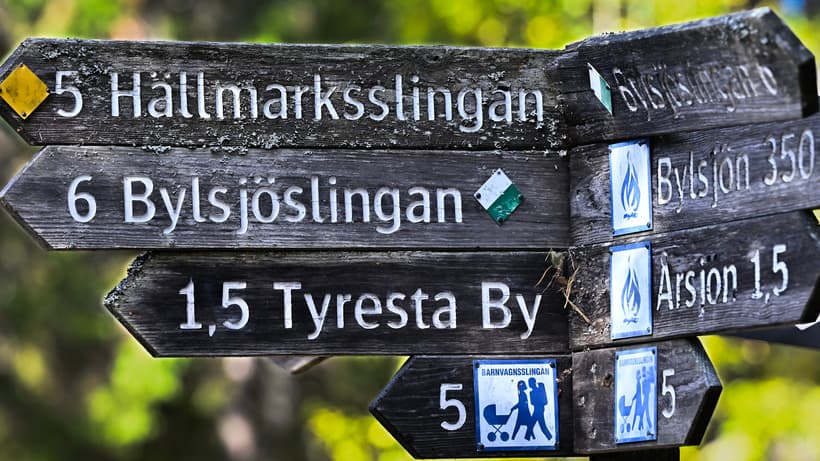The reduced government grants are hitting Sweden's approximately 5,000 state national parks and nature reserves hard. According to the Swedish Tourist Association (STF), the funds for the parks have been halved over the past seven years, despite the increasing interest in outdoor activities.
The cuts will eventually make it more difficult for the general public to access nature, according to STF.
In a new report from Friluftsfrämjandet, where 4,700 municipal politicians responded to questions, many believe that the reduced government grants will affect the conditions for local outdoor activities.
The infrastructure of the parks, built to support the public's outdoor activities, is being most affected. Reports from parks around the country indicate reduced staff, reduced maintenance of hiking trails, campfire sites, and closed toilets due to lack of resources or inability to empty latrines.
Forced to Close Down
Tyresta national park, located just south of Stockholm, with its 1.25 million visitors per year, is one of the most visited in Sweden. Park manager Jonas Ekstrand fears that he will be forced to close down the park's toilets this autumn, despite the high visitor pressure.
The road to the park, Tyrestavägen, also needs to be renovated urgently. A cost the park must bear, even though it is a state-owned road.
The local bus company recently contacted us and announced that they will soon stop transporting visitors who take the local traffic to the park if the road is not renovated, says Ekstrand.
Nature conservation, an important part of the parks' mission, has also been cut back, according to Jonas Ekstrand. Nature conservation officers move around the parks, meet and educate visitors, and ensure that the rules for protecting wildlife and nature are followed.
Influential Work that Engages
According to STF surveys, nine out of ten Swedes believe that outdoor activities are good for health, and seven out of ten experience recovery in nature. When the petition "Stop the Cuts in Nature" was launched last year, it quickly gathered 65,000 signatures.
In collaboration with Friluftsfrämjandet, STF is conducting continuous influential work that will continue this autumn.
Visitors are not decreasing because of the lack of funds, and we are wearing down nature as soon as we enter it. Our unique right to public access must be taken care of continuously. Right now, we are just pushing the problems forward, says Friluftsfrämjandet's general secretary Kristina Ljungros.
The county administrative boards provide the following examples of how nature reserves and outdoor activities are affected by the cuts:
Skåne: Broken rest shelters cannot be rebuilt
Dalarna: Reduced cleaning of toilets and rest areas
Gotland: Damaged railings cannot be replaced
Värmland: Poorer maintenance of hiking trails
Jönköping: Toilets must be closed
Stockholm: New rest areas and trails that are needed will not be built
Västerbotten: Rest cottages may need to be closed
Västra Götaland: No new railings and wind shelters will be built in certain places
Source: Swedish Tourist Association






